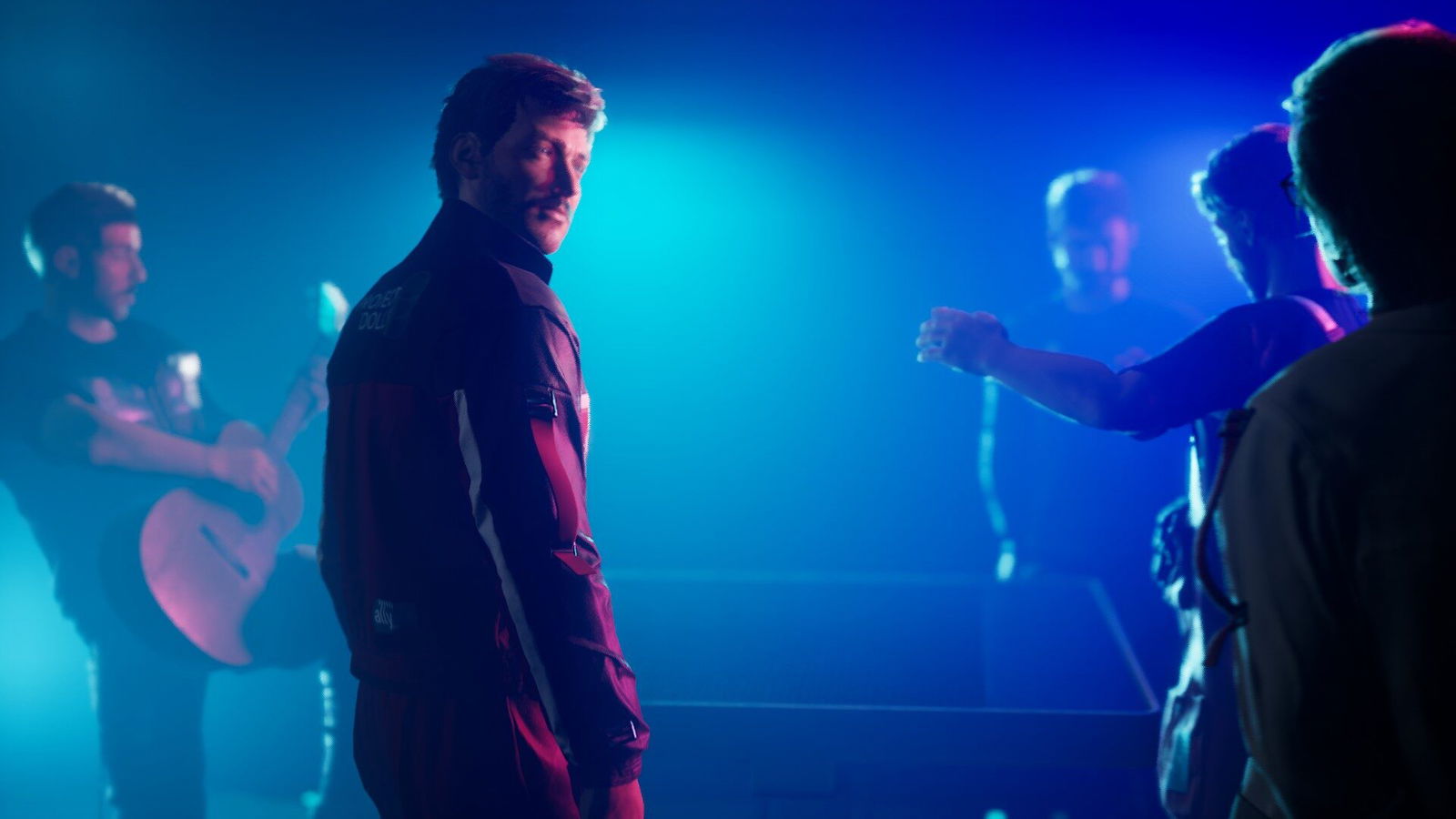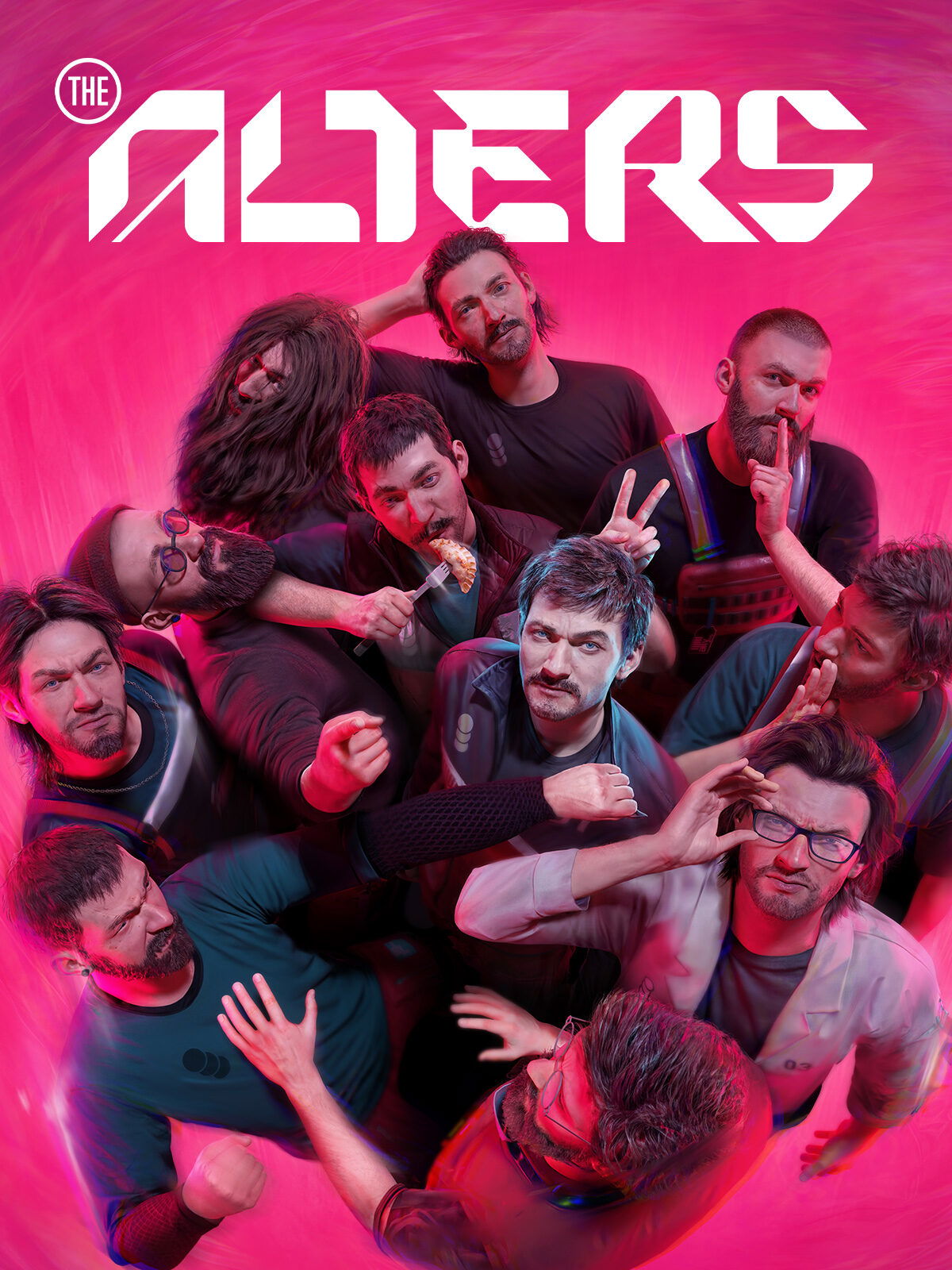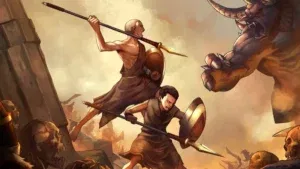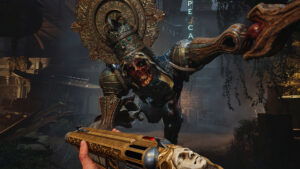It’s rare for a game to genuinely surprise me anymore, so when one comes along and changes my whole week, I tend to gush. And this week, no one can shut me up about The Alters.
The Alters is a moody, sci-fi survival game with base-building elements, developed by 11 Bit Studios—the same publisher behind INDIKA, another game from last year that I still try to shoehorn into every conversation.
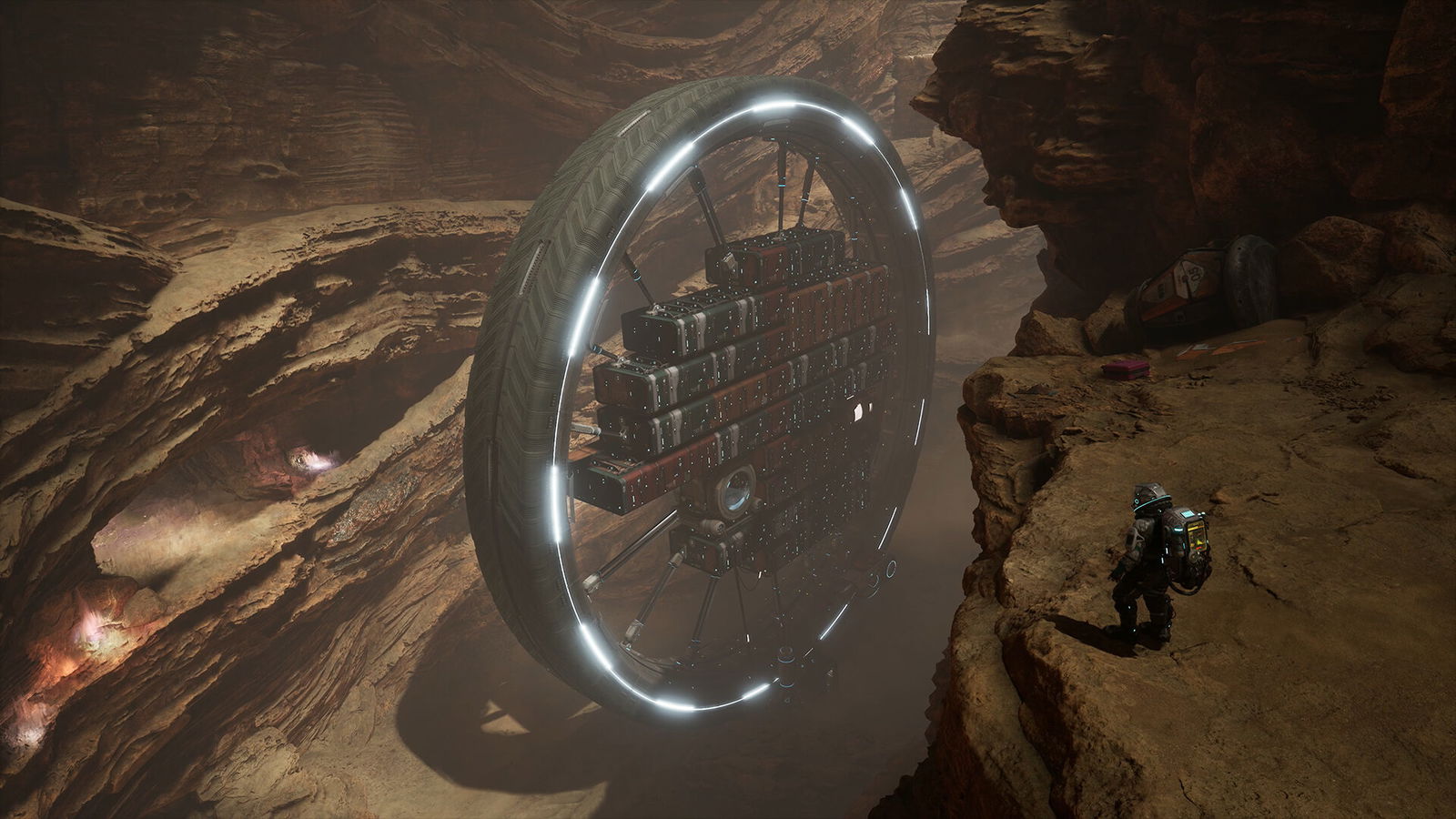
In a word, The Alters is different. It’s high-concept science fiction that relies on a mind-bending framework to tell a grounded, personal story. At the heart of that story is Jan Dolski, the sole survivor of an ill-fated mining mission, now marooned on a distant planet. To stay alive, he must keep a mobile mining base moving, racing toward rescue and away from the incinerating light of the rising sun.
But he can’t do it alone. To fill the void left by his lost crew, Jan is forced to use experimental technology to create a new one. Using a cloning machine and a quantum computer, he creates Alters—copies of himself from timelines where he made different choices at key moments in his life.
“In a word, The Alters is different. It’s high-concept science fiction that relies on a mind-bending framework to tell a grounded, personal story.”
Each Jan brings a new skill to the table but also unique complications. As the crew grows, their personalities clash and start to threaten the mission. Survival soon depends not just on technical skill but on self-reflection, personal growth, and confronting life’s what-ifs. If Jan doesn’t carefully manage his relationships with his Alters, the crossroads that once split their lives may lead to a head-on collision that could doom them all.
But it’s not just the planet that’s causing the Jans grief—their existence has ignited corporate boardroom drama over the ethical and legal implications of these Alters. Their only ace in the hole is to mine enough of the priceless, time-altering substance “Rapidium” to make a rescue mission worth the company’s trouble.
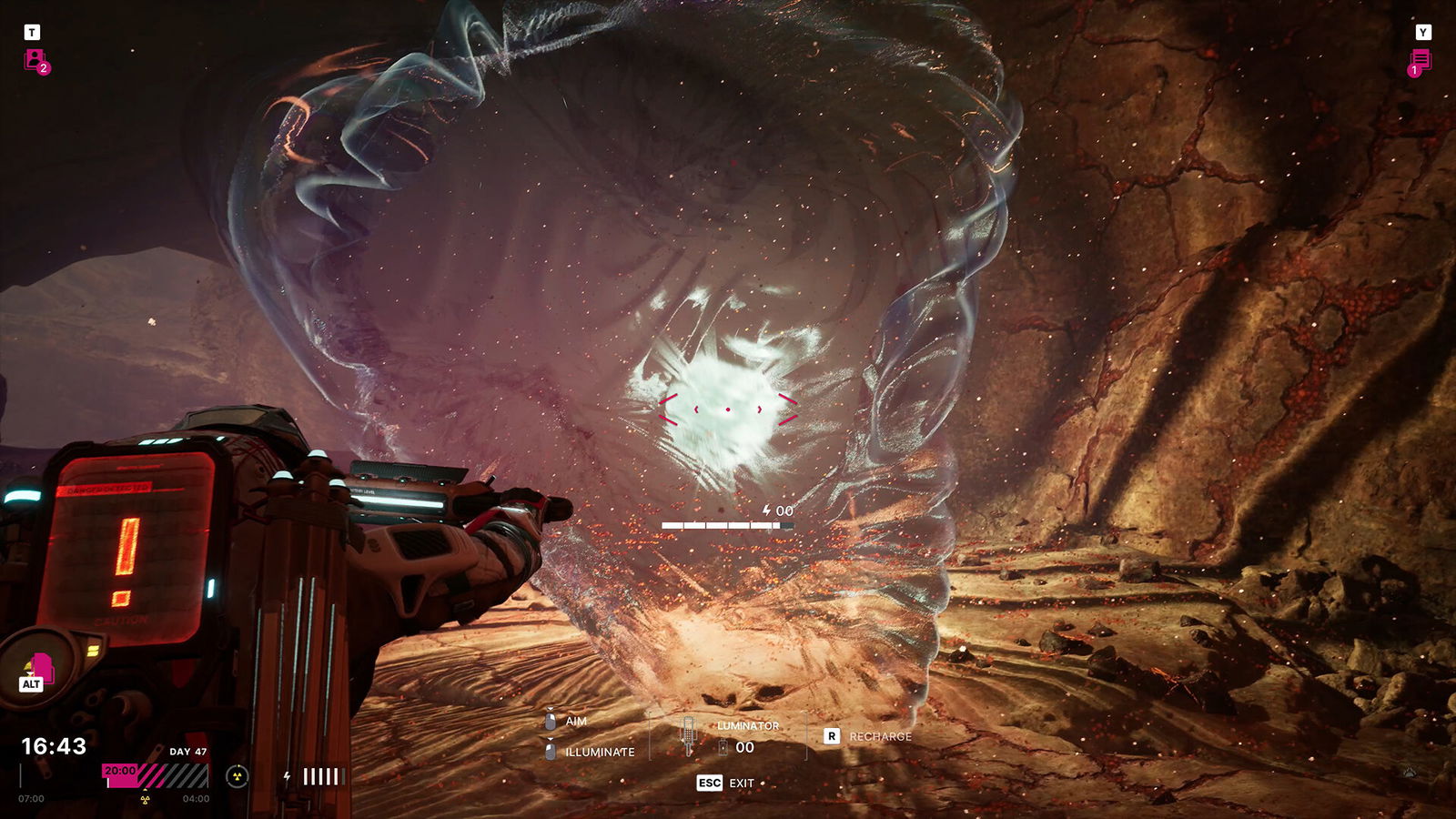
The best sci-fi uses technology as a mirror to confront difficult realities, and that’s an idea The Alters fully embraces. Weaker sci-fi tries to justify and ground its MacGuffins in science, eager to show its work—The Alters takes a more playful approach and just goes for it. If the story needs a cloning machine, it gets one. If progression requires a materializer, it appears. Need a defracting uncombobulator? Check the storage room. It’s refreshingly confident world-building that doesn’t mistake its framework for the point. The game trusts the audience to stay invested without bloating itself with expository lore.
The narrative also resists the temptation to use alternate universes and timelines for cheap twists. While The Alters has its share of secrets and surprises, its structure is more deliberate and restrained. It employs a straightforward, chronological three-act story that informs players of what they need to know when they need to know it.
Part of that restraint comes down to pacing—there’s no time for tricks, and there’s no need. The tension is constantly ramping because the clock is always ticking. It’s not just that the days are passing by either; they’re also getting shorter. By the end of each act, early mistakes and inefficiencies start to have dire consequences. Nothing gets forgotten. But all of it serves the real focus of the story: the human drama inside the base.
Jan and the Alters are genuinely compelling characters, and letting them down feels awful—but inevitably, you’ll have to. It doesn’t matter how superb your clone quartet performance was or how not-terrible the pierogies you cooked for the clone who stood up to Dad were—if you forget to craft someone a bed, they’re going to hate you.
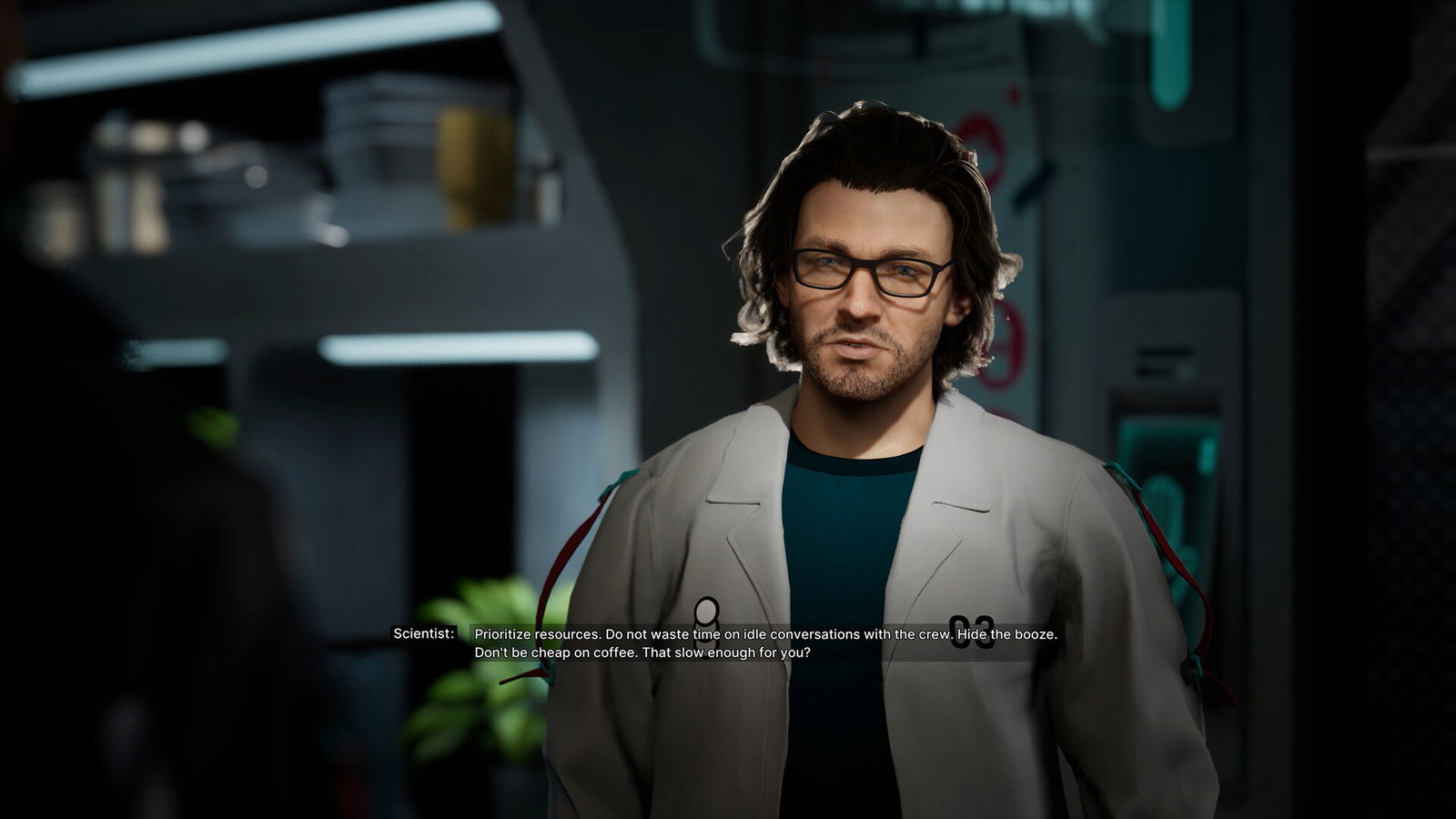
We spend a lot of time with the Jans—not only do we create them, but they’re also responsible for bringing us the story outcome we want. But we can’t please everyone. For an Alter to solve the problem they were created to address, Jan has to reconcile with the decision that split them apart. If he can, lessons from the Alter’s life improve Jan’s relationship with the rest of the crew; if not, the vibes in the base deteriorate, affecting how the Alters get along. However, not every Alter shares the same values, and agreeing with one over the other can have the same effect.
Managing these relationships makes up the lion’s share of the gameplay. In Jans’ alone time, we explore the surface world, hunting down resources, setting up mining equipment, and looking for loot and clues to share with the crew. However, ensuring that everyone has something to do and is willing to do it is key to keeping the base operational and needs to be micro-managed every few minutes.
There are multiple resources to mine, and you’ll need plenty of each—but getting someone to do the work isn’t always easy. If the Alters are dissatisfied, depressed, or overworked, they’ll start slacking off and ducking out early. Even those who enjoy their jobs can overexert themselves and sustain an injury. Some need more recovery time than others and may require help from another Alter to get back on their feet. Keeping them healthy and on task is like herding cats. The usual solution is to make another Alter—which works for a while—until that one has an existential crisis about being a clone and joins the cat herd.
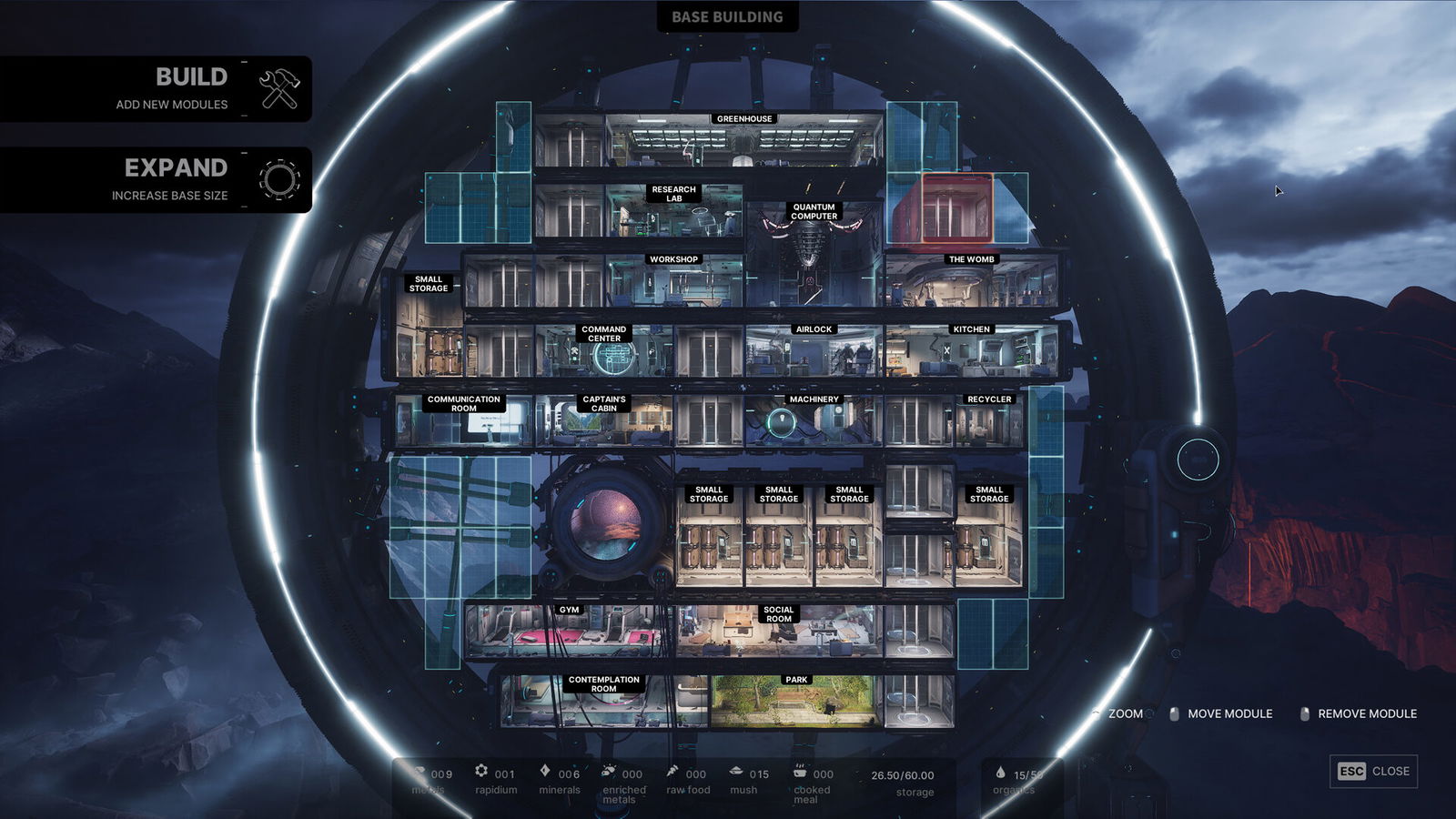
To ensure everyone remains mentally fit, you need to sacrifice valuable work hours to spend time playing with your selfs. Gathering the guys to watch a movie or getting sauced playing beer pong can raise morale and offset the morbs, but will affect how you perform the next day. Alternatively, you can craft new modules for the base that improve the quality of life, but even that isn’t so simple. For example, Refiner Jan needs a gym to work out, while Technician Jan prefers a quiet room to sit in. However, every new room increases the size of the base—and the cost of moving it. And the more time they spend relaxing, the less mining they’ll be doing to cover that cost.
The gameplay is varied, simple, and stressful. There just isn’t enough time to gather everything you need or to ensure everyone is satisfied. Nothing is exceptionally difficult, but the act of choosing something to do means that another priority is being entrusted to a stressed-out, unstable clone who may or may not be getting high on the job. And if that clone freaks out and cuts off his arm, he’ll be out of action for a while, spending his time meandering the halls and bumming everyone out.
“The Alters didn’t just fill a void; it left a lasting impression.”
The gameplay experience is designed to make you come to terms with imperfection. Even your home requires letting go. The mobile base is a giant wheel, but the modules you build for it are rectangles. No matter how you arrange them, there will always be free space on the grid, but there will never be enough room to fit everything you think you need. It’s a Kafka-esque nightmare that, on reflection, is perfect for a game about finding work-life balance while living at the mercy of a corporation.
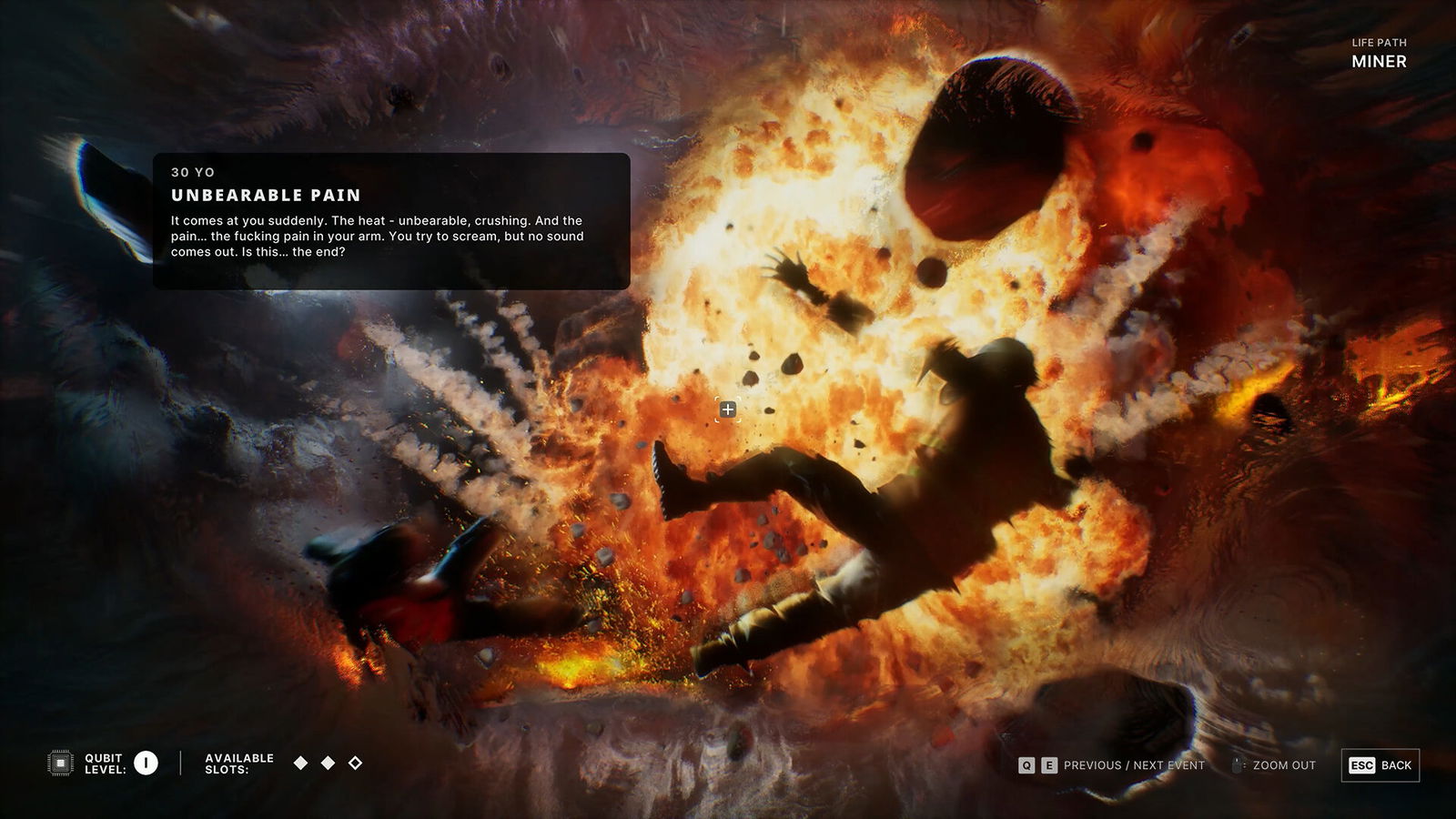
I agreed to review The Alters while still processing the brutal revelation that Death Stranding 2 is a PS5 exclusive. As a PC gamer, I should have seen it coming—but for some reason, probably hope, I didn’t learn that until last week. But The Alters looked delightfully weird, and I hoped it would fill the sci-fi-shaped hole in my heart.
The Alters didn’t just fill a void; it left a lasting impression. Hiding just below the surface of its high-concept, quirky premise is a deeply personal and heartfelt odyssey that tackles troubles that, at some point, we all have to deal with. It approaches heavy themes with sensitivity and humor, baking its anxiety directly into the gameplay. This approach finds a way to keep the tension and frustration constantly escalating for 30 hours while still making the game enjoyable to play.
